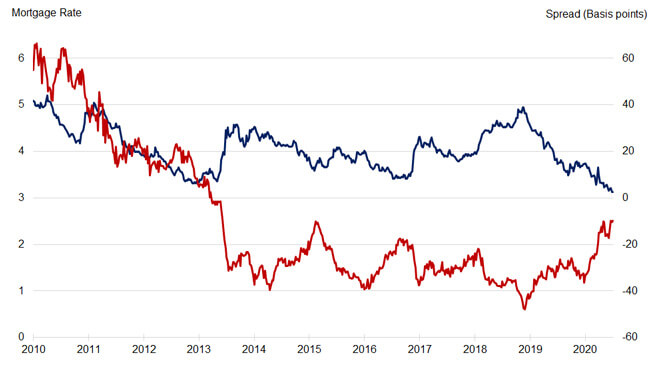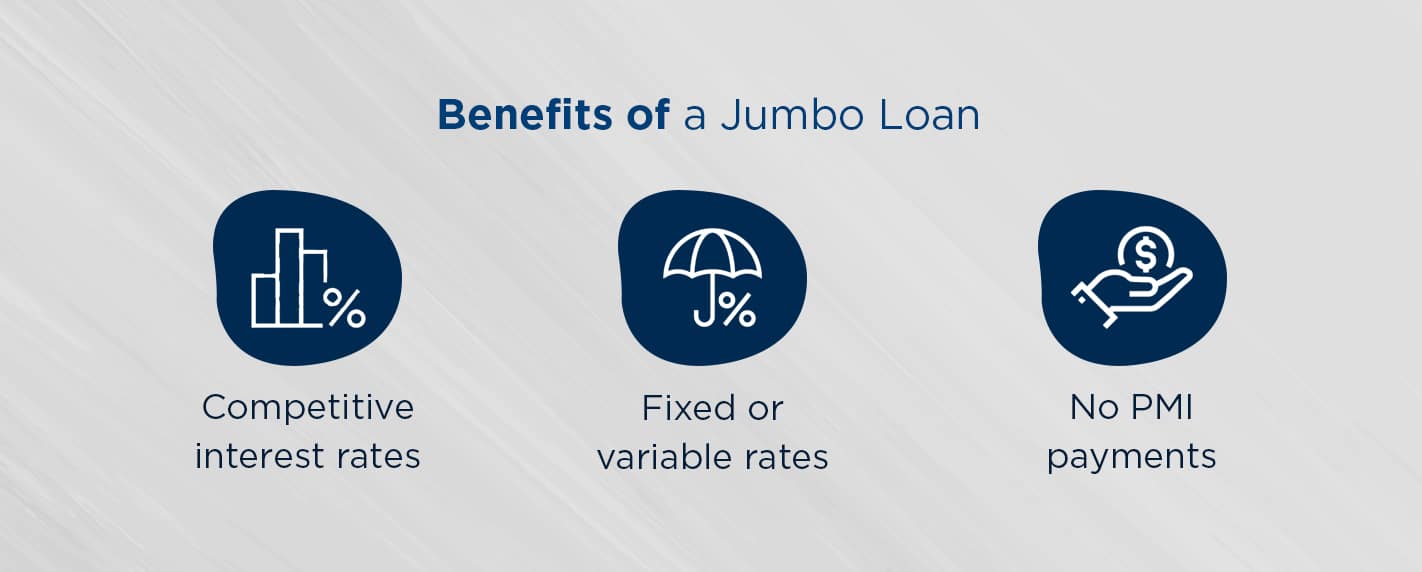Navigating the Jumbo Car Loan Landscape: Crucial Insights for First-Time Homebuyers
Navigating the complexities of big financings provides a distinct set of obstacles for novice buyers, especially in a developing actual estate market. Recognizing the essential qualification demands and potential advantages, together with the drawbacks, is vital for making notified choices. Furthermore, creating a solid economic technique can significantly improve your prospects.
Comprehending Jumbo Car Loans

Because jumbo lendings are not backed by government-sponsored entities, they bring various underwriting criteria and call for even more thorough economic documents. This difference can cause greater passion prices contrasted to traditional finances, given the enhanced danger to loan providers. Nevertheless, jumbo fundings likewise supply unique advantages, such as the ability to finance higher-value residential properties and possibly extra adaptable terms.
First-time buyers ought to likewise be aware that safeguarding a jumbo funding typically necessitates a larger down payment, normally ranging from 10% to 20%. In addition, consumers are typically anticipated to show strong creditworthiness and a steady income to certify. Comprehending these subtleties can empower newbie homebuyers to make educated choices when checking out big car loan alternatives in their pursuit of homeownership.
Eligibility Demands
Safeguarding a jumbo funding requires meeting certain qualification requirements that vary dramatically from those of conventional loans. Unlike traditional loans, which are typically backed by government-sponsored entities, jumbo car loans are not guaranteed or assured, causing stricter requirements.
Additionally, debtors need to show a durable financial profile, which includes a reduced debt-to-income (DTI) ratio, typically no higher than 43%. This ensures that borrowers can handle their month-to-month settlements together with other financial commitments.
In addition, a lot of loan providers require substantial documents, consisting of proof of revenue, possession statements, and income tax return for the previous two years. A significant deposit is additionally necessary; while traditional car loans may permit down repayments as reduced as 3%, big car loans often demand a minimum of 20%, relying on the lending and the lending institution amount.

Benefits of Jumbo Car Loans
For many novice property buyers, big financings offer distinct advantages that can help with the journey toward homeownership. One of the main benefits is the capability to finance properties that exceed the conforming lending limitations set by government-sponsored entities. This flexibility allows buyers to access a bigger range of high-value residential properties in competitive real estate markets.
Additionally, jumbo lendings frequently come with attractive passion prices that can be reduced than those of conventional lendings, especially for borrowers with solid credit scores profiles. This can cause significant cost savings over the life of the financing, making homeownership a lot more budget friendly. Big fundings usually allow for greater car loan quantities without the requirement for exclusive home loan insurance (PMI), which can additionally reduce general costs and regular monthly settlements.

Possible Drawbacks
Many potential homebuyers may discover that jumbo finances featured substantial drawbacks that require cautious factor to consider. Among the main worries is the rigorous qualification criteria. Unlike adhering car loans, jumbo i was reading this car loans normally call for higher credit history, typically surpassing 700, and significant revenue documents, making them much less obtainable for some consumers.
Additionally, big finances usually feature greater rates of interest contrasted to traditional financings, which can bring about boosted regular monthly repayments and overall borrowing prices. This costs may be especially burdensome for first-time buyers that are already navigating the financial complexities of purchasing a home.
Another noteworthy disadvantage is the larger deposit need. Lots of lenders anticipate a minimum down settlement of 20% or even more, which can present a difficulty for buyers with restricted cost savings. The lack of federal government support for big fundings leads to less beneficial terms and problems, enhancing the threat for lenders and, as a result, the loaning costs for property owners.
Last but not least, market fluctuations can dramatically impact the resale worth of premium residential properties funded with jumbo finances, including an element of monetary unpredictability that newbie buyers may discover daunting.
Tips for First-Time Homebuyers
Browsing the intricacies of the homebuying process can be frustrating for new purchasers, specifically when considering jumbo finances (jumbo loan). To simplify this trip, sticking to some crucial approaches can make a substantial distinction
First, enlighten on your own on big loans and their specific requirements. Understand the different lending standards, consisting of credit history scores, debt-to-income ratios, and down payment expectations. Typically, a minimum credit rating of 700 and a deposit of at the very least 20% are important for approval.
2nd, involve with an experienced home loan expert. They can provide understandings customized to your monetary situation and help you browse the details of the big financing landscape.
Third, take into consideration pre-approval to enhance your acquiring position. A pre-approval letter signals to vendors that you are a severe purchaser, which can be advantageous in open markets.
Last but not her latest blog least, do not overlook the significance of budgeting. Consider all prices linked with homeownership, consisting of property taxes, maintenance, and property owners' insurance coverage. By complying with these ideas, newbie customers can come close to the big financing process with greater confidence and clarity, enhancing their chances of successful homeownership.
Conclusion
In final thought, browsing the jumbo lending landscape calls for a detailed understanding of eligibility standards, advantages, and potential downsides. Ultimately, detailed prep work and education pertaining to jumbo financings can lead to more enlightened decision-making in the homebuying process.
When browsing the complexities of the real estate market, understanding big lendings is critical for novice buyers aiming for residential properties that exceed traditional loan limitations. Big lendings are non-conforming finances that generally surpass the adjusting car loan limitation established by the Federal Housing Finance Company (FHFA)In addition, jumbo fundings often come with attractive rate of interest prices that can be reduced than those of conventional finances, especially for customers with solid credit rating profiles. Jumbo financings generally enable for higher finance quantities without the need for exclusive mortgage insurance coverage (PMI), which can additionally lower total costs and monthly you could look here repayments.
Unlike adapting lendings, jumbo finances generally require higher credit report scores, usually going beyond 700, and significant earnings paperwork, making them less available for some customers.